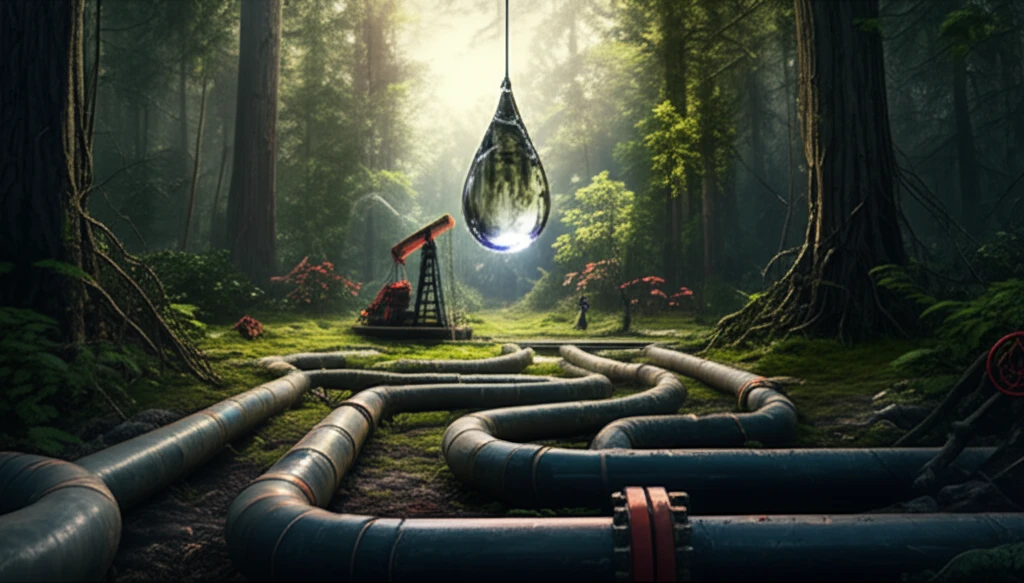
Unlocking Shale Gas: How Smart Water Management Can Boost Profits and Protect the Planet
"Discover how integrated strategies in shale gas extraction can turn environmental challenges into economic opportunities, ensuring a sustainable and profitable future."
The shale gas industry stands at a critical intersection. While its potential to bolster energy supplies is undeniable, the development of these resources is fraught with technical challenges and market volatility. These factors can severely undermine new projects, making it essential for stakeholders to adopt smarter, more integrated strategies.
One of the most pressing challenges is water management. Hydraulic fracturing, a key technique in shale gas extraction, demands vast quantities of water, raising concerns about depletion and contamination of local water resources. Simultaneously, fluctuations in gas prices and the composition of wastewater add layers of complexity to project planning and execution.
Fortunately, innovative solutions are emerging. By integrating advanced decision-making tools and adapting to uncertainty, companies can optimize their operations to minimize environmental impact and maximize profitability. This article explores a groundbreaking methodology for evaluating and managing water resources in shale gas supply chains, turning potential liabilities into strategic advantages.
The Integrated Approach: Balancing Profit and Planet

Traditional approaches to shale gas development often treat water management as a separate issue, leading to inefficiencies and increased risks. However, a more integrated strategy considers water management as intrinsically linked to the entire supply chain, from initial extraction to final processing. This holistic view enables companies to make smarter decisions that balance economic and environmental considerations.
Looking Ahead: A Sustainable Future for Shale Gas
As the demand for energy continues to grow, shale gas will undoubtedly play a significant role in meeting global needs. However, its development must be guided by principles of sustainability and responsible resource management. By embracing integrated approaches to water management and adapting to uncertainty, the shale gas industry can unlock its full potential while safeguarding the environment for future generations.
